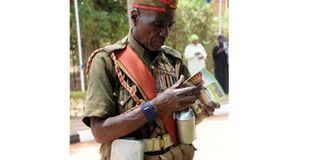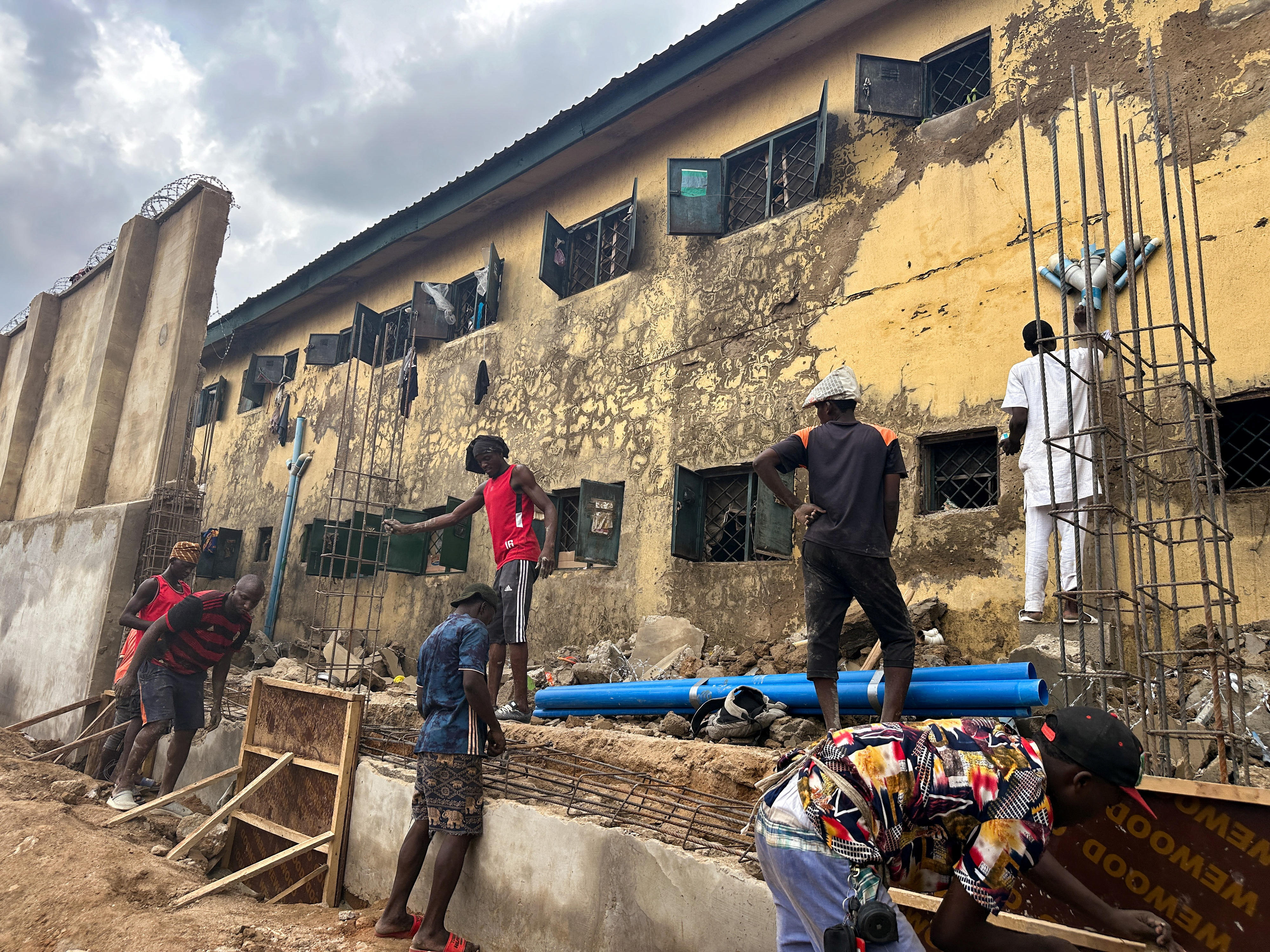War & Peace: When Ugandans fought for the British Empire

A former World War II fighter looks through a manual in Mbale in February. Many of the veterans received no recognition for their efforts. PHOTO BY Yusuf Muziransa
What you need to know:
Ugandans did not only contribute money to support Britain in World War I and II. They also put their lives on the line in defence of principles that they neither really understood nor enjoyed at the time.
Kampala
One of the least known ironies of colonialism goes like this: Uganda became a British ‘Protectorate’ so that Britain, with its superior weaponry and fighting experience, could protect the territory and its people from themselves and from external threats but it was Uganda that ended up helping to protect Britain.
War and conflict between rival tribes and kingdoms had existed before the advent of colonialism, as had raiding parties to collect slaves and tribute. Colonialism might have forced a collective new national order and held it together by the threat, real and implied, of violence but the absence of war did not necessarily mean the presence of peace.
The imposition of colonial rule was, in and of itself, a violent act, as seen through the religious wars in Buganda, the lengthy war that eventually broke Omukama Kabalega’s resistance in Bunyoro, the violent putting down of uprisings in northern and eastern Uganda, and the military control of Karamoja for over two decades.
Less than two decades after signing of the 1900 Buganda Agreement – seen as a watershed moment in the imposition of colonial rule over what came to be Uganda – natives were being herded out to help protect British interests during World War I.
Ugandans were also called up to the plate to defend the empire during World War II. Under the Compulsory Service Ordinance, 70,000 Ugandans had been recruited to the war effort by 1944, of whom 1,296 had lost their lives on active service – contrary to some views which suggest Ugandan and African servicemen were cooks and laundry boys who never came within a mile of danger.
Apart from a monument near Constitution Square in Kampala, there is little to show for the sacrifice that these men made towards defending the British Empire. Yet their contribution went beyond fighting in the war; they became catalysts of change when they returned to the country at the end of the war.
Robert H. Kakembo is one of the most famous yet little-known ex-servicemen thanks to his book, The African Soldier Speaks in which he documented some of his experiences and those of his fellow African conscripts during the war.
“It will be recorded by historians that it was during the war that the African started to think more in terms of race than as a tribe,” Kakembo wrote. “The words the “African”, the “native” were showing us that we are all one and the same race.”
The colonial administration initially blocked the publication of Kakembo’s book and sought to keep a lid on the potentially destabilising influence of the returning ex-servicemen. “Instead of being published, [Kakembo’s book] was put in a confidential file and kept from African readership,” writes Prof. Tarsis Kabwegyere.
“Two hundred copies were sent to Kenya, Tanganyika, Zanzibar, Northern Rhodesia and Nyasaland, for the notice of the policymakers in these areas warning them that Kakembo was not the only one; ex-servicemen must be contained lest their knowledge could be used for subversive activities.”
The colonial administration had reason to worry. As Prof. Samwiri Karugire notes in his book, Roots of Instability in Uganda, “When the war was over and the African servicemen were demobilised and returned to their various countries, they found that little had changed.
Returning home and changes
“The colonial officials were still in charge and the Africans were not any freer than before the war. It was some elements of these servicemen who became ‘agitators’, as those who espoused the cause of African nationalism were known in colonial vocabulary.”
Deliberate attempts were made to contain the returning ex-servicemen. In an April 4, 1941 letter, the Resident of Buganda (the colonial official in charge of the area) gave instructions for all ex-servicemen to be “encouraged to return to their own tribal areas and the position made clear that it is most unlikely that they will be able to find employment in Kampala”.
There was some merit in the argument but returning soldiers were more likely to remain in urban areas and become catalysts for change.
Prof. Mahmood Mamdani has noted that many of those who served in World War I returned to take up jobs as drivers; some returnees from World War II joined the same line of work while others turned to trade. Both drivers and traders played a key catalysing role, in any case, in the agitation for Independence.
Prof. Karugire notes that, “After the war in 1939-45, there was a remarkable change in the political tempo in most British colonial possessions.”
“Many observers attribute this change to the experiences, which the colonial peoples gained in various theatres of war. In part, this awakening was due to the war propaganda itself; it had been drummed into the ears of all soldiers that the sacrifices they were being called upon to make were all in the cause of freedom.”
This reality was not lost on the colonial administration. As early as 1942, the Governor of the Uganda Protectorate issued a circular proposing reforms to accommodate the influence of the returning ex-servicemen.
“We can no longer determine according as seems best to us in other words dictatorship cannot be perpetuated and if we look for the inner reason it is because we have been waging, and have called upon the coloured races to wage with us, war against dictatorship,” he wrote. “Hitherto we have always been activated by honest belief that what we think good for the African good is so. It is an honest well-intentioned motive on the part of the ruler but not always contending the ruled. To quote the old saying, ‘good government is no substitute for self-government’.”
The returning ex-servicemen played a role as catalysts but why were they unable to mobile a nation-wide movement, such as that of the Mau Mau next door, and demand Independence on their own terms? And how different would Uganda be if we had fought for Independence, rather than had it handed down to us?




